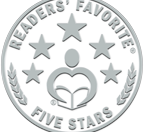Last Draft Lessons on Writing a Novel

The last draft is done. Done? Well, that’s relative for sure. It’s not easy to set the pen down and say the story is over. The characters have become friends and I hope I did them justice. Writing is gut wrenching and I’m great at second guessing. Some days I read the chapter and was happy and the next day I wanted to keep editing. Letting go is hard.
Brooklyn Bitters is different from my former novel, Pages in the Wind. Pages in the Wind was well received by the critics and I worry about comparisons. I can’t help wonder if sequels are easier, at least you already know the characters.
I love the characters in Brooklyn too, they are just different. They’re not as messed up as Pages so the message is more muted. But Kate, of Brooklyn Bitters, is close to my heart and I love her character. She grows and learns a lot during her journey and I especially appreciate the relationship she has with her mother and friend, Winona. Her sister, Stacey, was fun to write and tried to hyjack the story!
Here are a few lessons I’ve learned during this writing process:
* I need more privacy. When I wrote Pages, I had few interruptions. Now, I have fairly constant interruptions and that makes the writing process harder. I’ve had to go to a hotel a time or two. So, I need to improve my space.
*Beta readers are better during the second draft. For me, the first draft is bare bones and doesn’t reflect well. I prefer to keep the first draft to myself and get beta readers for the second.
*Editors should be reserved for the final. I made that mistake and it turned out to be a stupid thing to do and a waste of time and money.
*Having help for the research was so helpful. I had an amazing all-around brilliant PR expert that listened to my upcoming audio book, did research, and was a reader. She is golden. Thank you, Regina!
*Writing software is so-so. I like grammerly and autocrit but the latter is only effective to a point. It tags a lot of issues that aren’t really issues like passive words in dialogue etc… it’s great for checking repetition though. Pacing? Not so much, for me anyway.
*Reading apps that read the work back are great. Amazing what you can catch with the ear that you can’t catch with the eyes! Some are better than others and some won’t work with your computer. I have “Speak to me” and “Read to me.” The voices are somewhat flat but you have voice choices which helps. I dug the guy with the British accent.
Writer’s block is real. I think the lack of privacy contributed but definitely it’s a fact of life at times. And no fun! For me, I just kept writing. I got stuck on a few chapters and threw a lot away but kept writing until I broke through. I know some writers leave it and go back later, but that didn’t work for me. I prefer to keep writing and live with the frustration. In the long run, it worked out.
Every writer is different, I’m sure, but those are the lessons I’ve learned from this book. Now, on to the next!
